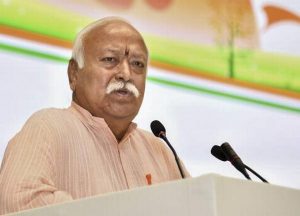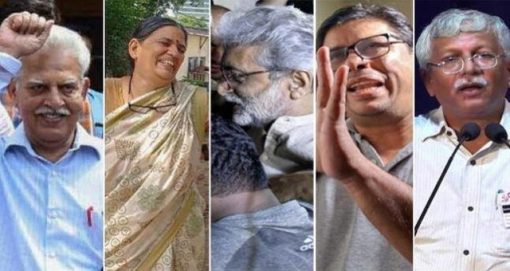The following mail has been sent to the President of India with CC to the PM of India, CM of Maharashtra and the DGP of Maharashtra.
To,
The Honourable President of India,
Sir,
This is to draw your attention towards the imminent threat of arrest that Prof. Anand Teltumbde is facing in the aftermath of rejection of the appeal he filed at the Supreme Court regarding the fabricated FIR lodged against him by the Pune police. He has currently been granted a period of four weeks for seeking pre-arrest bail from the competent Court.
Prof. Teltumbde is an IIM-A alumnus, IIT Professor, Executive Director of BPCL, Ex-MD & CEO of Petronet India, Senior Professor and Chair, Big Data Analytics in GIM, author of 26 books, columnist in EPW, writer of innumerable articles, a noted scholar of caste-class and public policy issues, leading public intellectual and democratic and educational rights activist.
Coming from the poorest of the poor family, Prof. Teltumbde passed through the best institutes in the country with scholastic achievements. Just being an alumnus of hallowed IIM Ahmedabad, he could have easily lived a luxurious life only if he had chosen to ignore social oddities around him. However, with a sense of contributing to better the lives of people, he decided to just make enough to sustain his family at a reasonable living standard and devote time to make an intellectual contribution, the only thing possible, towards making the world a little more just. Informed by this instinct, the residue of activism during his school and college days naturally landed him in organizations like Committee for Protection of Democratic Rights (CPDR) of which he is today the General Secretary and All India Forum for Right to Education (AIFRTE) of which he is a presidium member. He has selflessly fought against caste-based discrimination, human rights violation of the marginalized and has advocated the cause of reaching education to the poorest of the poor. There is not an iota of unlawful in either his voluminous writings or selfless activism. Rather, his entire academic career and corporate career of nearly four decades have been without a single blemish and exemplar of the integrity of highest degree. Despite all these, the danger of being arrested under the tag of an ‘Urban Maoist’ looms large over him.
As per the affidavit submitted by the Pune police in High Court, the five charges levied against Prof. Teltumbde stand on the basis of five letters, each of which had been refuted completely by him. But at the end of these proceedings, a sealed envelope was given to the judges by the Police. The Court hereby rejected his petition, without considering the above refutations, his personal credentials, and the absence of plausibility of connection of the claims made by the Police to his profile.
Since Prof. Teltumbde holds a strong case, he approached the Supreme Court, but the Court refused to interfere in the police investigation and asked him to seek a pre-arrest bail from the competent court. Under such preposterous charges, Prof. Teltumbde can only be arrested under the draconian UAPA, that would invariably amount to a devastation of his academic, social, and personal life. For a person who has devoted almost four decades of his professional life in serving this state apparatus, such criminalization is utterly unjust.
The current situation is in absolute need of your kind and speedy intervention and assurance of prevalence of justice through dismissal of the false FIR against Prof. Anand Teltumbde and grant him pre-arrest bail such that he may be able to continue contributing academically and socially without any hurdles. We think if not intervened, it will pose serious questions on the democratic ethos of our country.
With Regards,
Coordination of Science and Technology Institutes’ Student Associations (COSTISA)
(www.facebook.com/supportcostisa)


